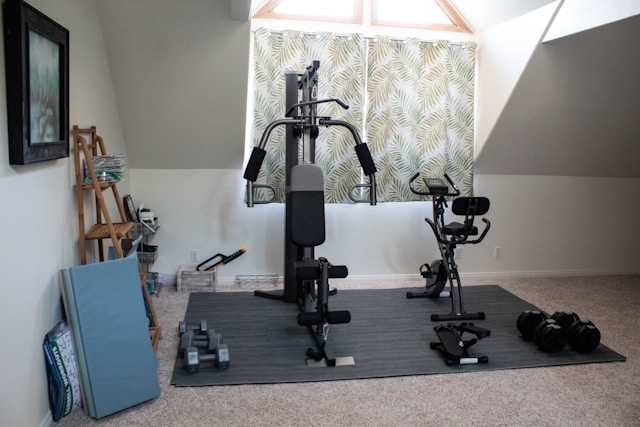With busy lifestyles and the rising cost of gym memberships, more people are choosing to convert a room into a home gym. Whether it’s a spare bedroom, garage, or even a corner of the basement, building your own workout space at home can save time, money, and make fitness more accessible and enjoyable.
In this guide, you’ll learn how to set up a home workout room from scratch whether you have a large space or a small corner and turn it into a place that motivates and supports your fitness goals.
Why Build a Home Gym?
There are several benefits to creating a home gym setup. For starters, it eliminates the need to commute, which can save hours over time. It also gives you the freedom to work out on your own schedule and in complete privacy. More importantly, it can be tailored to your personal fitness needs, preferences, and lifestyle.
A home gym can:
-
Save you long-term money on memberships
-
Provide privacy and reduce distractions
-
Offer a safe, comfortable space to stay active
-
Support consistent fitness habits
Choose the Right Room
The first step in learning how to convert a room into a home gym is choosing the right space. Many people use an extra bedroom, garage, attic, or even a section of their living room. Here are key things to consider:
-
Space: Make sure the room can accommodate your equipment and provide enough room for movement.
-
Ventilation: Good airflow is crucial, especially for high-intensity workouts.
-
Noise: Consider how sound travels especially in apartments or shared homes.
-
Floor strength: If you plan to use heavy weights, ensure your flooring can handle the pressure.
If you’re working with a small space, don’t worry. There are plenty of home workout room ideas for compact areas using foldable or multifunctional gear.
Plan Your Space Wisely
Before buying anything, measure your room and plan your layout. Think about how you’ll use the space:
-
Will it be mostly cardio?
-
Do you need space for weightlifting?
-
Are you planning yoga or stretching sessions?
A good rule of thumb is to dedicate zones for specific activities. For example:
-
One corner for cardio equipment like a treadmill or stationary bike
-
A wall section for strength training with dumbbells and resistance bands
-
An open floor area with a mat for stretching or yoga
Planning the layout in advance ensures you use every inch of your small space home gym effectively.
Choose the Right Gym Equipment for Home
Your equipment choices will depend on your goals, budget, and available space. Here are some must-have items to consider:
For Cardio:
-
Jump rope (affordable and space-saving)
-
Stationary bike or treadmill
-
Rowing machine or elliptical trainer
For Strength:
-
Adjustable dumbbells
-
Kettlebells
-
Resistance bands
-
Barbell and squat rack (if you have room)
For Flexibility and Mobility:
-
Yoga mat
-
Foam roller
-
Stability ball
If you’re building a budget home gym setup, start with essentials like resistance bands, a mat, and a pair of dumbbells, then add more over time. Buying used equipment or checking online marketplaces can help you save even more.
Flooring and Wall Considerations
One of the most overlooked yet important parts of a home gym is the flooring. Good flooring protects your joints, your equipment, and your original floors.
Best options for home gym flooring:
-
Interlocking rubber mats
-
Foam tiles
-
Heavy-duty carpet squares
When it comes to walls, think functional and motivational. Mount mirrors to monitor your form and make the space feel bigger. Use wall-mounted racks to store equipment and hang resistance bands. You might also want to install hooks for jump ropes or mats.
Creating the Right Atmosphere
Your environment can have a big impact on your motivation. Small changes can make your home workout room feel like a true gym.
Add the following to boost your atmosphere:
-
Bright lighting or natural light sources
-
Bluetooth speakers or a small sound system for music
-
Inspirational posters or wall decals
-
Air fresheners or essential oil diffusers for freshness
These additions aren’t necessary for your workout but can dramatically improve how the space feels, making you more likely to return day after day.
Budgeting Tips for Your Home Gym Setup
You don’t need thousands of dollars to convert a room into a home gym. Here are ways to stretch your budget:
-
Start with the basics: A mat, resistance bands, and a set of dumbbells are enough to begin.
-
Buy used equipment: Look for secondhand options online or at local gyms clearing out inventory.
-
DIY some storage: Use shelves, crates, or pegboards to keep your gym organized without spending much.
Remember, the most important thing is consistency. Start small and upgrade your home gym as you go.
Keep It Safe and Maintained
A functional home gym is also a safe one. Make sure:
-
Heavy items are secured and stable
-
Wires or cords are tucked away
-
You allow enough space between equipment
Regularly clean your equipment and wipe down surfaces, especially if you’re sweating a lot or sharing the space with others.
Final Thoughts
Turning a spare room into a home gym is one of the best investments you can make in your health and lifestyle. It provides you with convenient, round-the-clock access to fitness and removes many of the excuses that prevent people from staying active.









